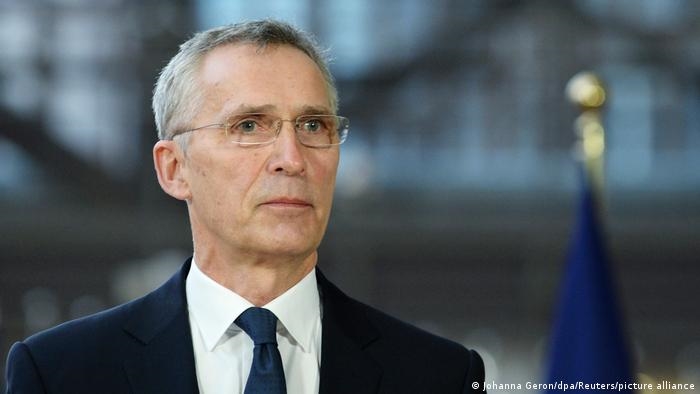NATO leaders discuss 4 battlegroups for the alliance in the east
The alliance will also be increasing military spending in addition to spreading battalions east of Europe.
-

NATO Secretary General Jens Stoltenberg
Al Mayadeen's correspondent reported Thursday the conclusion of the NATO summit at its headquarters in Brussels, and the subsequent start of the G7 meeting.
During the summit, NATO leaders discussed modernizing the deterrence and defense systems, and that the first step in this direction will be the formation of four combat groups in eastern Europe.
"The NATO leaders will today address the need for a reset of our deterrence and defense in the longer term. And the first step is the establishment of four new battlegroups in the eastern part of the Alliance in Bulgaria, Romania, Hungary and Slovakia," NATO Secretary-General Jens Stoltenberg said before the meeting.
"I expect Allies to agree to accelerate the implementation of the commitments we have made to invest more in defense," said Stoltenberg, welcoming the decision: "And I welcome the decision, for instance, by Germany to spend 2% of GDP on defense. This will really make a difference because Germany has such a big economy, so the increased investments by Germany makes a difference for the whole Alliance."
Regarding how long the battlegroups will be staying - especially in Romania - Stoltenberg stressed "they will remain there as long as necessary."
NATO to agree on new troop deployments for eastern allies
NATO Chief Jens Stoltenberg announced Wednesday that the alliance's leaders are set to agree at a summit on significant new troop deployments for eastern allies in response to Russia's special military operation in Ukraine.
"I expect leaders will agree to strengthen NATO's posture in all domains with major increases of forces in the eastern part of the alliance, on land, in the air and at sea," Stoltenberg indicated.
"The first step is the deployment of four new NATO battle groups in Bulgaria, Hungary, Romania, and Slovakia," Stoltenberg told journalists ahead of an urgent NATO summit in Brussels happening Thursday.
He also pointed out that NATO leaders are set to agree on extra support for Ukraine to deal with chemical and nuclear "threats".
"I expect allies will agree to provide additional support, including cybersecurity assistance as well as equipment to help Ukraine protect against chemical, biological, radiological, and nuclear threats," Stoltenberg mentioned.
Russia had for months been warning of the threat posed against it by NATO's attempts to expand eastward, which happened simultaneously with an increase in NATO military activity along Russia's borders, and batches of lethal weapons being sent to Ukraine, prompting Russia to request security guarantees from the West. Washington failed to provide the guarantees.

 3 Min Read
3 Min Read









